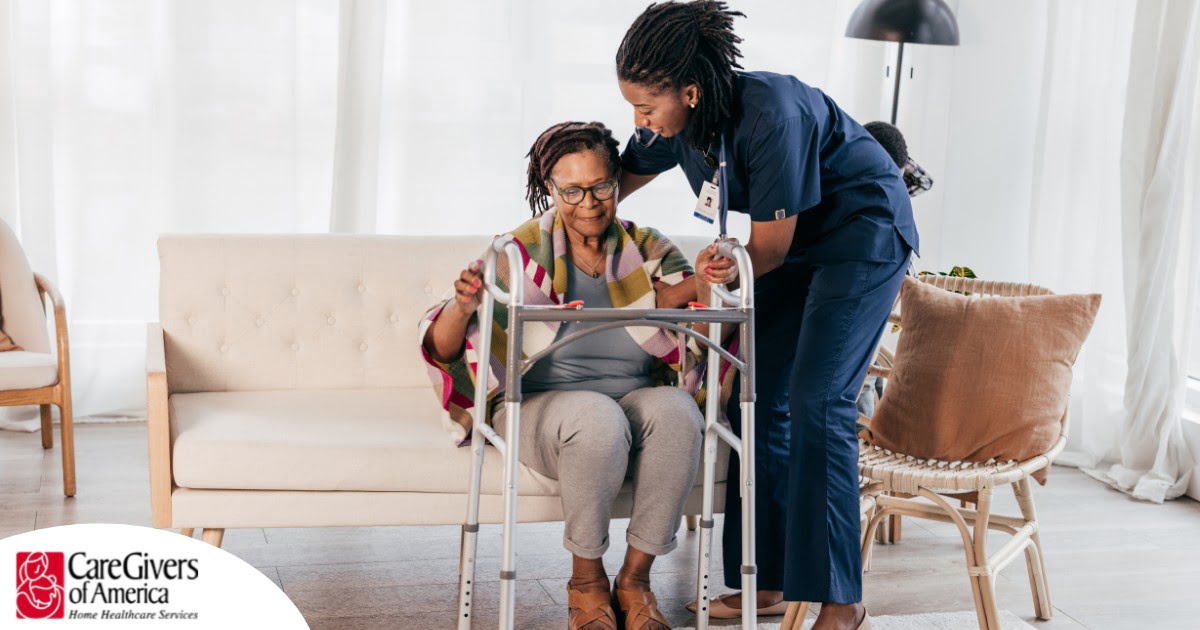The recovery journey after a hospital stay can be a life-changing experience for patients and their families. Transitioning from a hospital’s structured environment to the comfortable and familiar confines of home often presents unique challenges. As an essential aspect of home recovery care, occupational therapy can help patients and their families navigate the post-hospital landscape more effectively.
Read on to explore the role occupational therapy plays in enhancing the home recovery experience, enabling patients in Boca Raton to smoothly and confidently transition post-hospitalization.
What Is Occupational Therapy?
Occupational therapy (OT) is a healthcare specialty focused on helping individuals engage in meaningful daily activities or “occupations.” These activities may range from self-care tasks like dressing and grooming to more complex community and work activities. Occupational therapists (OTs) are trained to assess and intervene in various settings, including hospitals, outpatient clinics, rehabilitation centers, and clients’ homes.
Within home settings, occupational therapists tailor their services to the unique needs of patients recovering from injuries, surgeries, or chronic illnesses. They employ evidence-based strategies to facilitate skill development and environmental adaptations. While collaborating with patients and family caregivers, occupational therapists create personalized intervention plans that foster independence and confidence in everyday life.
Whether finding adaptive equipment, modifying living spaces, or teaching compensatory strategies, occupational therapy is instrumental in bridging the gap between hospital care and home independence.
Why Might Patients in Boca Raton Need Occupational Therapy Post-Hospitalization?
After being discharged from a hospital, patients may face various challenges requiring occupational therapy assistance. Common scenarios include:
- Surgical Recovery: Patients recovering from surgeries, including hip or knee replacements, often experience reduced mobility. Occupational therapists can provide specialized exercises to facilitate movement and offer guidance on modifying activities of daily living (ADLs) to accommodate physical limitations.
- Neurological Conditions: Individuals recovering after a stroke or traumatic brain injury may require OT services to relearn essential skills, such as using utensils, writing, or managing personal hygiene. Therapists design tailored interventions aimed at recovery and adaptations.
- Chronic Illness Management: Patients with chronic diseases like arthritis or heart disease may need help restructuring their daily routines to better manage their symptoms. Occupational therapy can provide strategies to alleviate pain and fatigue while promoting an active and engaged lifestyle.
- Cognitive Impairments: Patients experiencing cognitive decline due to aging, injury, or illness may require support in areas such as memory, attention, and organization. Occupational therapists can assist in developing strategies and utilizing tools to support cognitive function in daily tasks.
- Pediatric Needs: Children hospitalized due to injury or illness may also benefit from OT. Therapists can engage them through play and structured activities to develop physical and cognitive skills crucial for their growth and recovery.
The Benefits of In-Home Occupational Therapy
Incorporating occupational therapy into your home recovery plan can bring several significant benefits, enhancing your recovery’s quality and speed. Here are five reasons to consider:
Personalized Care Plans
Occupational therapists assess individual needs and develop tailored programs that target specific challenges. This customized approach ensures that patients engage in meaningful activities, enhancing motivation and adherence to the recovery plan.
Skill Development
OTs empower patients to regain daily living skills through targeted training. Whether it’s relearning how to prepare meals, manage finances, or perform household chores, OTs provide the support needed to build competence and confidence.
Home Modifications and Equipment Recommendations
Therapists can identify environmental barriers and suggest modifications to make homes safer and more accessible. This might include recommending grab bars in the bathroom, organizing spaces to minimize fall risks, or suggesting adaptive devices that simplify daily tasks.
Family Involvement and Support
In addition to working with patients, OTs also engage family caregivers. Training friends and relatives in caregiving techniques nurture a supportive environment and promotes collaborative efforts in recovery.
Long-term Wellness and Prevention
Beyond immediate recovery, occupational therapy equips patients with strategies to prevent future injuries and promote lifelong health. By combining assistive technology and adaptive equipment with family education, OTs lay the groundwork for sustained independence and quality of life.
How to Find the Right In-Home Occupational Therapy Provider
Many home healthcare agencies offer occupational therapy services, making it vital for patients and families to know how to access and utilize these resources effectively. Finding the best in-home occupational therapy provider can significantly enhance the home recovery experience.
Here are five ways to identify a suitable home health OT partner:
Consult Your Healthcare Providers
Speak with your physician or discharge planner before leaving the hospital. They can recommend reputable home health agencies that offer occupational therapy services that align with your recovery needs.
Consider Credentials and Certifications
Ensure that the occupational therapists employed by the agency are licensed and certified. Do they hold a degree in occupational therapy from an accredited program? Are they registered with the National Board for Certification in Occupational Therapy (NBCOT)? Validating this information ensures you’re receiving care from highly qualified professionals.
Research the Agency’s Reputation
Read online reviews and testimonials from former clients. Websites like Medicare.gov post detailed information on agency performance ratings. Additionally, local community forums or social media groups can offer insights into the experiences of other patients and families.
Ask About Specialized Services
Not all home health providers are created equal. When contacting agencies, ask about their areas of OT expertise. For example, are therapists experienced in neurological conditions, post-surgical recovery, or pediatric care? Taking this step helps ensure the provider can effectively meet your specific needs.
Meet the Therapist and Assess Compatibility
Once you’ve narrowed your search, request an initial consultation with each provider. Use this opportunity to gauge the therapist’s approach, communication style, and willingness to engage with both the patient and family caregivers. A good rapport and understanding of your expectations can significantly enhance recovery.
Final Thoughts About How Occupational Therapy Enhances Home Recovery
While recovering at home after a hospital stay can be challenging, utilizing occupational therapy services can empower patients and their families to enjoy a smoother transition. Occupational therapy enhances home recovery through personalized care, promoting independence, and equipping patients with the tools necessary for success. With proper support, individuals can regain their previous level of functioning and obtain essential skills for long-term well-being.
Whether managing post-surgical care, adapting to chronic conditions, or seeking ways to recover lost skills, in-home occupational therapy from a reputable home healthcare provider could be a real difference-maker as you navigate the road to restored health and independence.
Dignified In-Home Occupational Therapy for Clients in Boca Raton
Once you leave the hospital, navigating the home recovery care landscape can be overwhelming. Put your mind at ease by contacting CareGivers of America in Boca Raton. As a fully licensed and accredited provider, our highly trained professionals can deliver the home health care services you or your loved one deserve—including Occupational Therapy, Dementia Care, Companion Care, 24-Hour Care, Light Housekeeping, Meal Preparation, Medication Supervision, Personal Care, and Respite Care.
While assisting clients in Lauderhill, Boca Raton, Aventura, Miami, Fort Lauderdale, West Palm Beach, and Broward, Palm Beach, and Miami-Dade counties, our agency’s focus is maintaining our clients’ quality of life, along with their dignity, self-esteem, and independence. For your added convenience, all our home health services can be individually personalized into an affordable package when and where you need them! Please visit CareGivers of America now to learn more about our in-home Occupational Therapy solutions or schedule a FREE initial consultation for someone in our service area.






